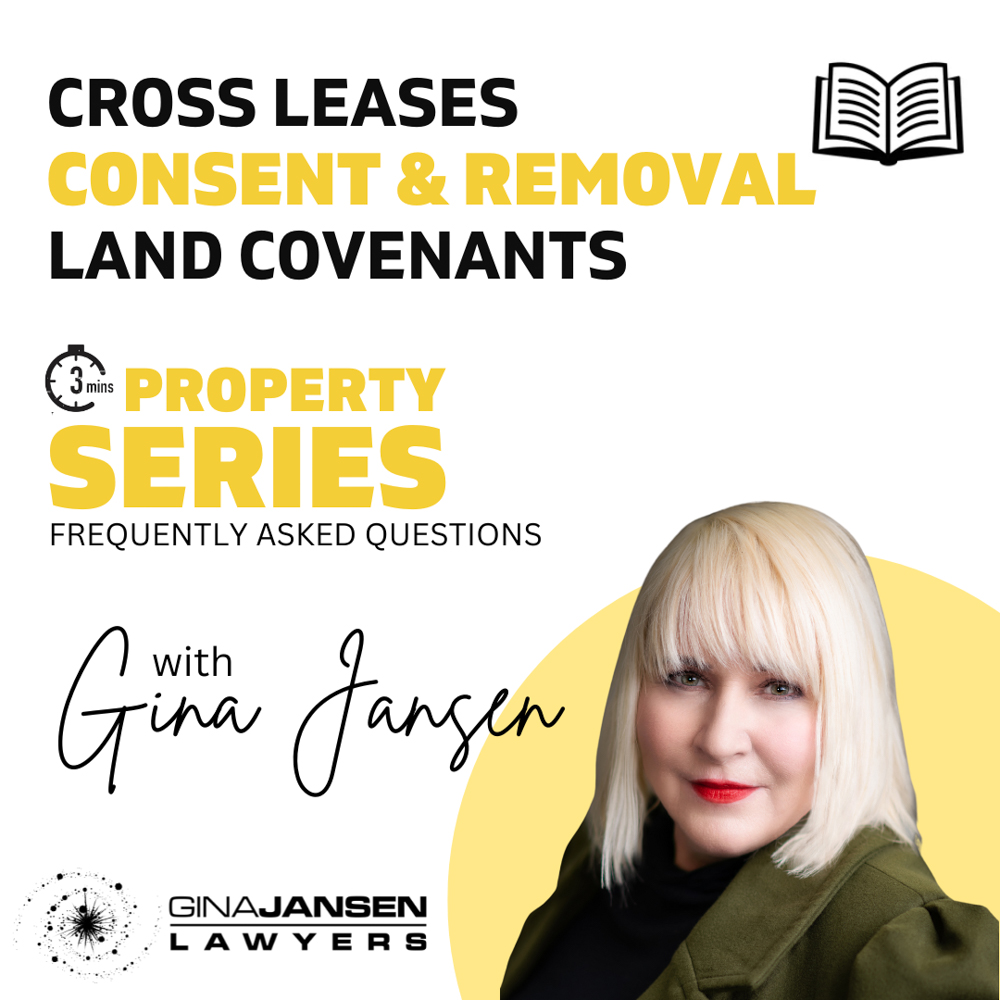Do you have a cross-lease property and are being asked by your cross-lease neighbour(s) for your consent to do structural alterations to their dwelling or additions to their property? Can you refuse consent? Do you have a fee simple property with land covenants/easements that restrict the use of your land? Can you have these removed?
What are my obligations under the cross-lease?
Most cross-leases include a covenant that a cross-lease neighbour must first obtain the written consent of all other cross-lease property owners before making any alterations to their property, or additions to common areas, with the proviso that consent cannot be unreasonably withheld. If the lease is silent on this, cross-lease property owners may still be prevented from unreasonably withholding or delaying their consent under the Property Law Act 2007. Interestingly, the cross-lease document itself does not define what is unreasonable.
When can I refuse to give my consent?
The leading authority on refusal is a 30-year-old case called Smallfield v Brown where the Court held that a balancing of the interests of both parties is required to determine whether the withholding of consent by one owner is unreasonable. The Court held that consent is unreasonably withheld only where the proposed alterations would produce a substantial benefit to the cross-lease property owner seeking alterations to their property, but amounts to a trifling detriment to the refusing cross-lease neighbour. Smallfield set the bar very high; a “mere trifling detriment” test allows a neighbour to withhold consent to proposed works even though there was little material detriment to them. However subsequent cases in New Zealand have determined that this approach is not correct. A cross-lease neighbour is only required to act reasonably, including when taking into account their own concerns with the potential to make it easier for a cross-lease owner to make structural alterations; they no longer need to show a substantial benefit to themselves, and the party whose consent is required cannot refuse simply because it has a mere trifling impact on them. Rather, the consenting neighbours must reasonably believe that the proposed work would injure their interest in the property.
I have a Restrictive Land Covenant on my Title. Can it be removed?
Where your title has restrictive land covenants, or easements, i.e. your use of your land is restricted, owners may be unknowingly in breach. A land covenant is a private agreement, binding all future owners, to do, or not do, a thing in respect of the land. Restrictions can include: height restrictions on buildings, the use of specific building materials/designs and using a residential property for commercial use, for example hosting accommodation such as Air BNBs. Easements typically give rights over land in relation to access, water, electricity and telecommunications. Where a covenant/easement is no longer relevant, it can potentially be removed.
How do I Remove a Land Covenant or Easement?
Given land covenants and easements are contracts relating to land, on application the Court may modify, or remove a land covenant or easement if satisfied there is good reason that all specific requirements have been met, for example a change to the property use, character of the neighbourhood, or the restrictions are no longer reasonable. Local territorial authorities may need to be included. Each application will be assessed on its own facts. As land covenants and easements can restrict a land owner’s use of their own property, it is vital that thorough due diligence is undertaken before purchasing, building or renovating.
Got questions about property? Please connect with us on Insta, Facebook, or email us via our website at www.ginajansen.co.nz.











